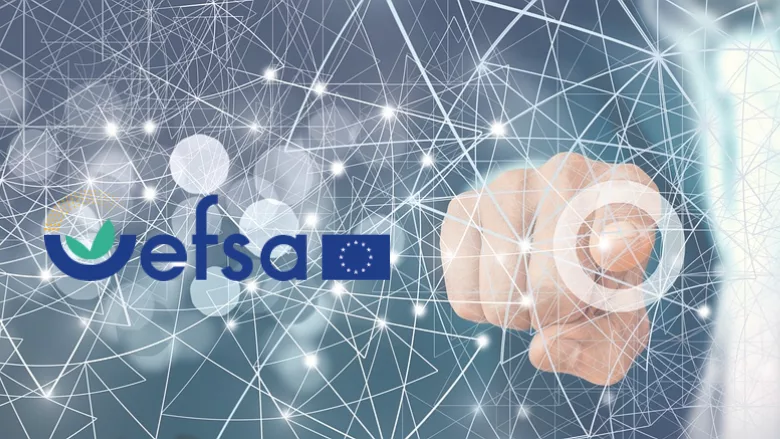EFSA Strives to Digitalize EU Food Systems, Standardize Data to Improve Food Safety

Credit: geralt via Pixabay, EFSA
The European Food Safety Authority (EFSA) recently published a report detailing the activities of its Advisory Group on Data during 2022. The aim of the EFSA Advisory Group on Data is to demonstrate the ways in which digitalization of food systems can improve food safety in Europe.
The Advisory Group on Data intends to demonstrate how digitalization can improve food safety through:
- Data interoperability enabled by standardized terminology and quality metadata
- The connection, integration, and opening up of data streams from various sources, such as official controls, industry, citizens, and research
- Using advanced computational methods and artificial intelligence (AI) to conduct real-time, predictive data analysis
- Increasing data literacy within the risk assessment, risk management, and risk communication community.
In July 2020, the 76th meeting of the EFSA Advisory Forum endorsed the final report of its Task Force on Data Collection and Data Modeling, which included 45 recommendations for working toward a future, comprehensive food safety data system that will support a safe, sustainable food supply chain. The Advisory Group on Data was formed to provide input on and oversee activities initiated by EFSA and EU Member States to implement recommendations of the Task Force on Data Collection and Data Modeling.
Of the original 45 recommendations, six have been identified as high-priority:
- Establish new ontologies supporting the food safety data analysis framework
- Establish a central platform for food safety-related information
- Increase understanding of a strategic data model for systems, such as the information management system for official controls (IMSOC)
- Begin discussions on a common European food safety data model
- Begin discussions on the applicability of solutions other than relational databases
- Support the development and application of novel analytical approaches, such as AI.
Progress was made on the high-priority recommendations by way of several projects that were ongoing in 2022. For example, the Advisory Group on Data concluded a pilot project that showed the feasibility of connecting national and EU-level data systems, and provided further recommendations for the co-creation and practical implementation of data-sharing and data processing tools.
The group also focused on setting up governance and an operational structure for the long-term operations of the group, and created six subgroups to further technical discussions on certain topics, specifically:
- Developing and Sharing Tools and Technology
- Digital Platforms and Ecosystems
- Innovative Data Analytics and New Data Streams
- Data Literacy and Data Capacity
- Data Quality
- Data Modeling and Terminology.
Additionally, the Advisory Group on Data launched five different projects, work on which is to begin in 2023, and elaborated their uses and funding mechanisms. The projects will facilitate the development of:
- A data flow mapping consultancy
- A data model mapping tool
- A business rules engine tool
- A point-of-sampling data collection tool
- The FoodEx2 Smart Coding Application.
The projects and tools planned for development are intended to address some of the most pressing data-related challenges in food systems risk assessment. EFSA envisions the proposed tools as “interoperable building blocks,” and recommends they be used in combination as components of customized data pipelines for processing, sharing, and connecting data sources.
Looking for quick answers on food safety topics?
Try Ask FSM, our new smart AI search tool.
Ask FSM →








